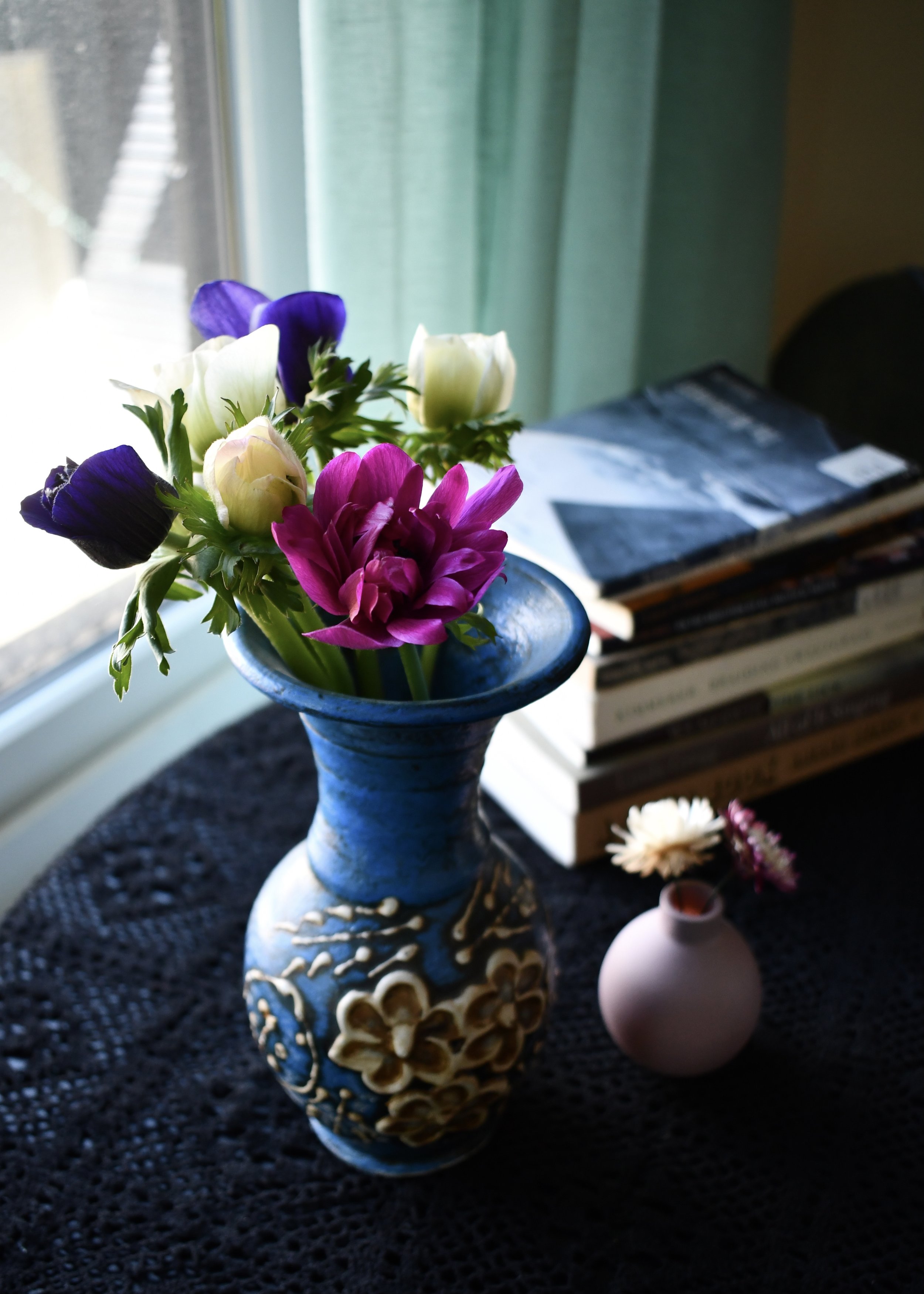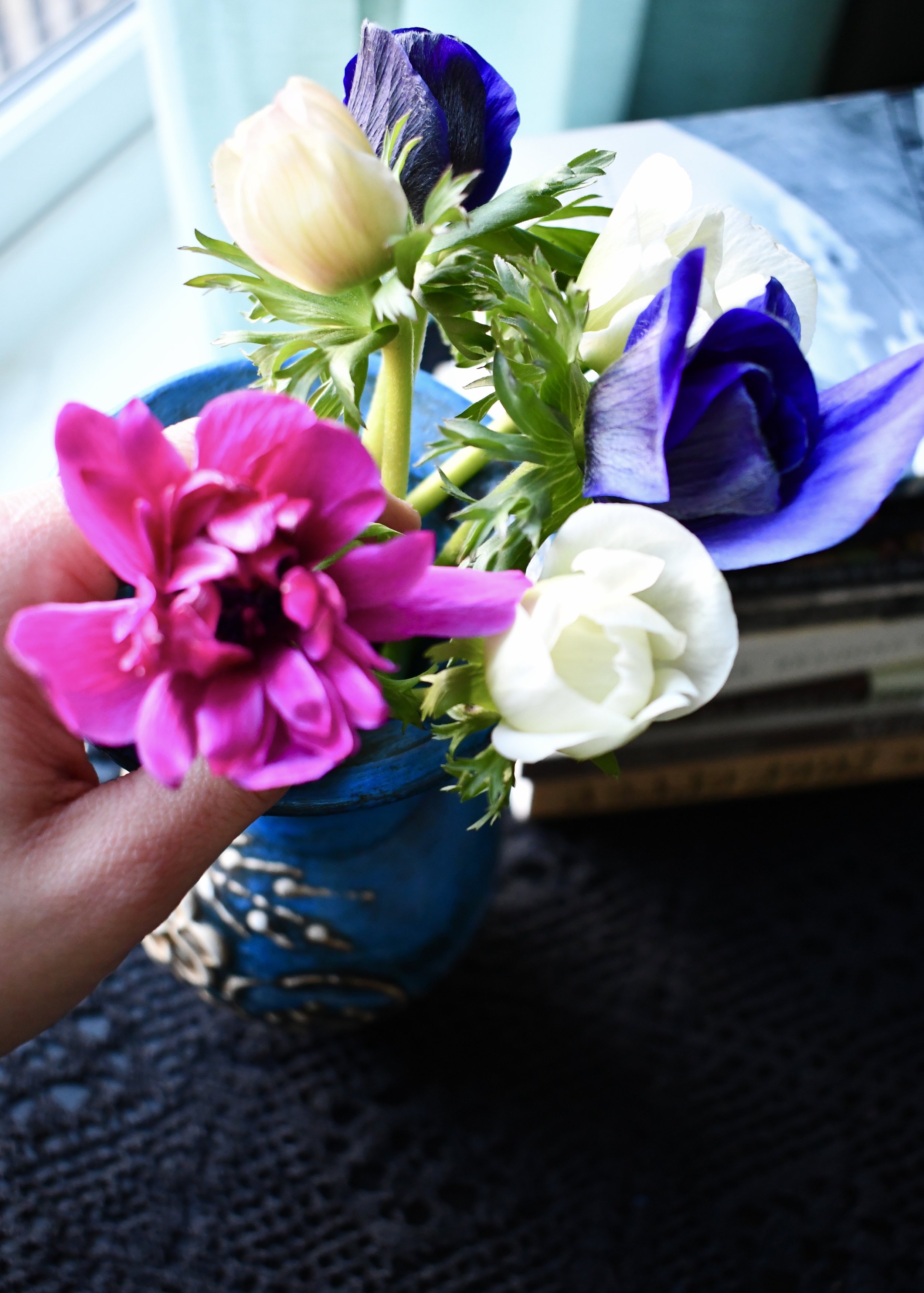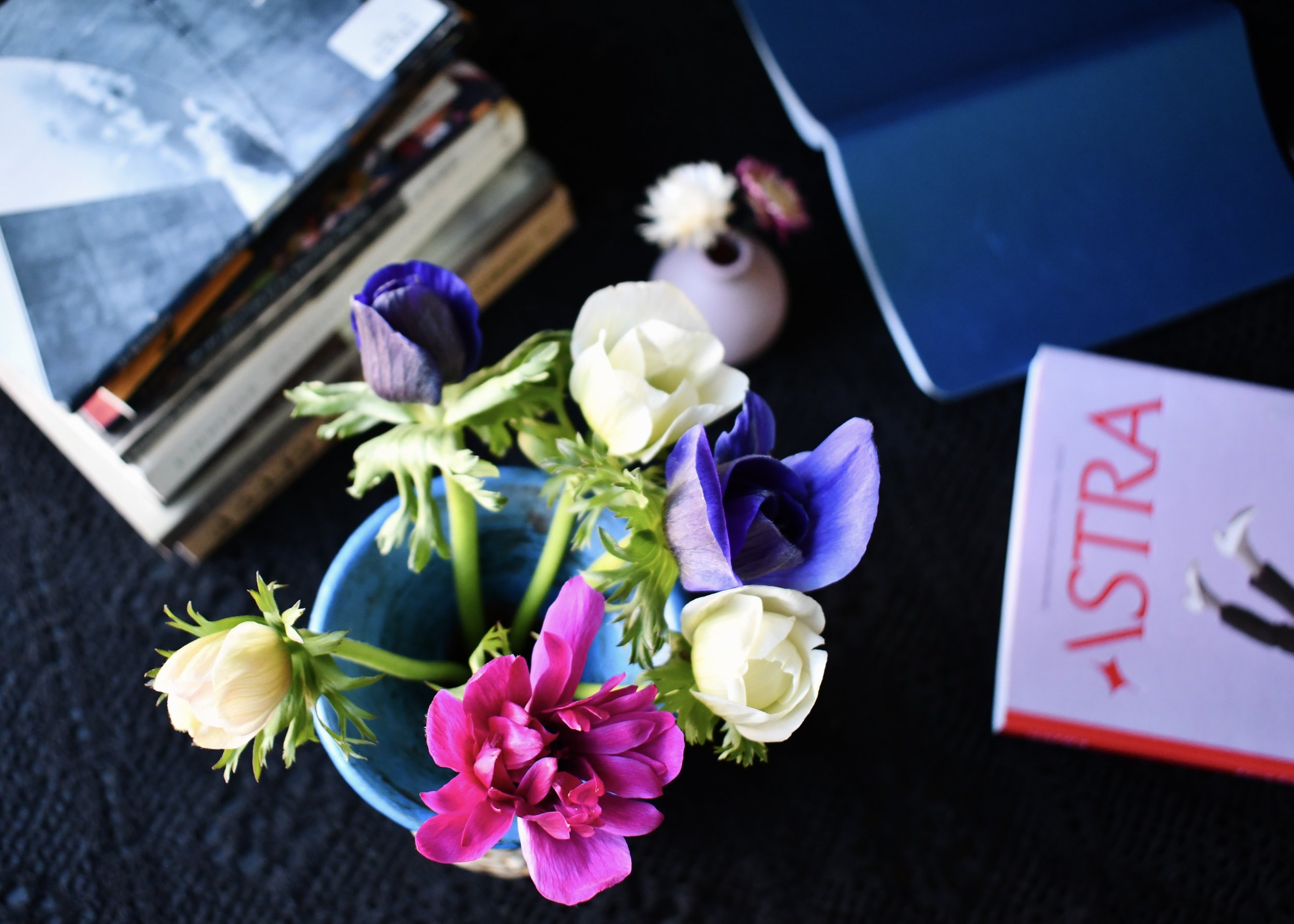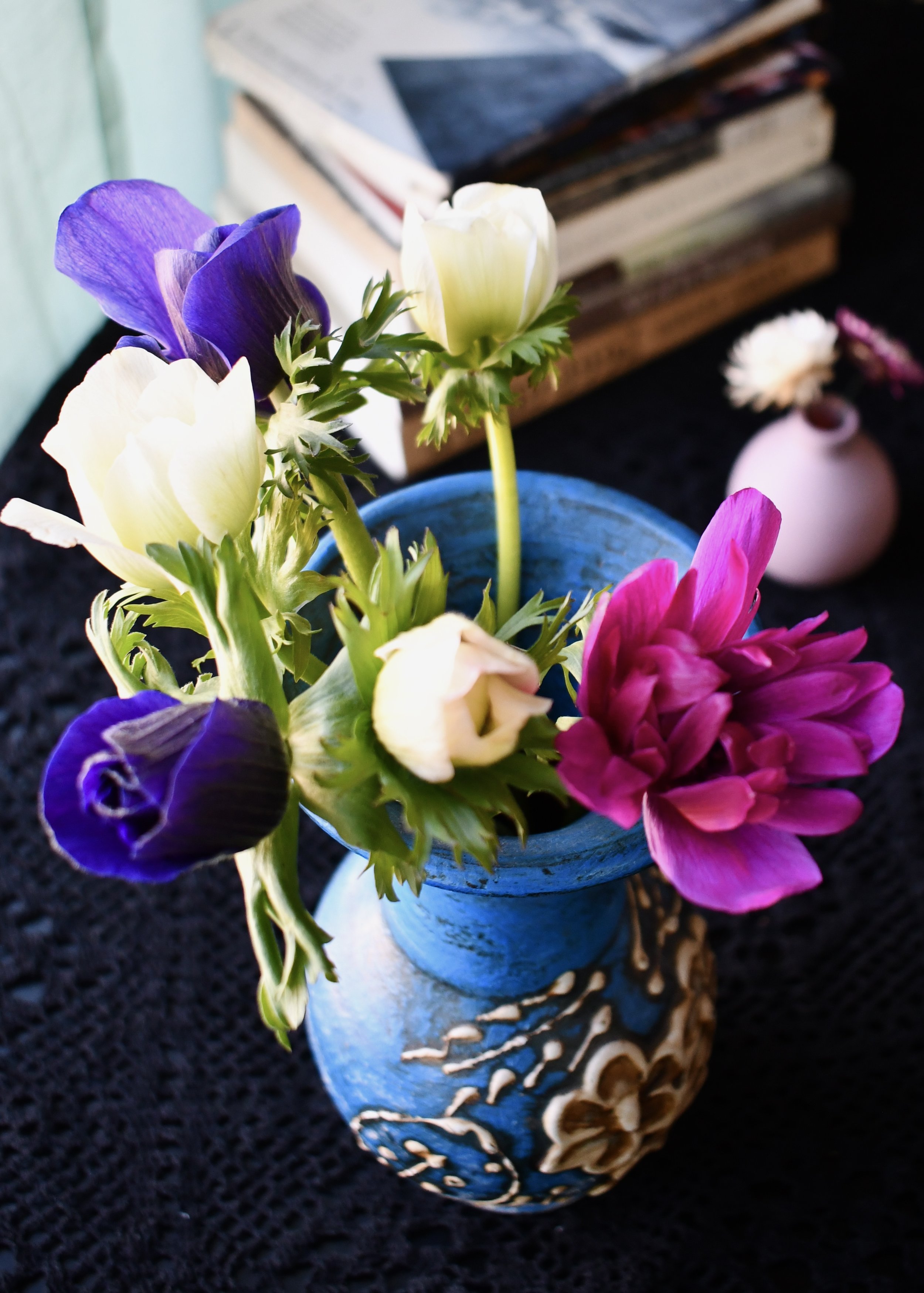Solid Objects: Patrycja Humienik
Tayari Jones keeps a baby food jar of dirt on her desk from Toni Morrison’s hometown. CJ Hauser gifts her students a tiny plastic chicken to pull out whenever and wherever it’s time to write. Writing totems, talismans, amulets—we ascribe many names to the objects we keep close while we write. These objects inspire us, comfort us; they can prompt our productivity, make their way into our writing, or at the very least, serve as a dangling carrot to the world beyond our daily pages.
In Virginia Woolf’s short story, “Solid Objects” her main character grows enamored with a smooth piece of green glass he finds at the beach. “It pleased him; it puzzled him; it was so hard, so concentrated, so definite an object compared with the vague sea and the hazy shore.” The right object can be our own green glass; a raft when we’re treading the slippery shapes thoughts take.
In SOLID OBJECTS, we ask writers about the objects most essential to their creative practice, and what exactly these objects do for their brains.
This edition is written by Patrycja Humienik.
I write, work, and eat at the same table, which gets tiresome. When I attempt to claim the table as a writing space, I rearrange objects on its surface: the latest stack of books I’m in the middle of or hoping to read, postcards and letters from beloveds, an hourglass with sand the color of the crest of a wave when the sun hits, a wristwatch with two clock faces, and flowers—blossoming, wilting, or long dried out.
And there’s the blue clay vase I’ve had for 11 years. The blue at once electric, unyielding, serene. I bought the vase at a market in Isla Negra, after visiting Pablo Neruda’s home, when I was lucky to study in Chile. From Neruda’s oceanside house I remember most vividly a single long tusk displayed in a glass case. I learned then that narwhals are real, and still exist. I’m reminded that the oceans rival our imaginations.
The vase isn’t essential to my creative practice—I’m not sure any object is—so much as it reminds me why I’m writing, why I make art, what moves me. The why isn’t fixed. It isn’t a cohesive argument, a single memory, or a singular intent. There are anchors, though, like the words I return to again and again, a line I hear sometimes when I look at the vase, sung by Chilean folk musician and activist Violeta Parra, “Lo que puede el sentimiento no lo ha podido el saber.” I roughly translate this, imperfectly, to: “What feeling is capable of, knowledge hasn’t grasped.”
Sometimes I write into a feeling, or try to write myself out of one. The autumn I bought the vase, spring in Chile, I was introduced to the work of Nicanor Parra. The final lines of his often shared poem “Young Poets,” translated by Miller Williams, both haunt and motivate me: “In poetry everything is permitted.// With only this condition of course,/ You have to improve the blank page.” Not everything I write is an improvement, and I wonder if the sentiment contributed to my not writing much poetry for years after my semester there. In recent years, I've been practicing the giving myself permission part.
I think often about another line from Parra’s book Antipoems: “I take back everything I’ve said.” The line is a kind of permission for me—a humbling reminder that we can disagree with ourselves, that language, in all its possibilities, violence, and music, is a limited tool, and that sharing one’s writing over the course of a lifetime means our grappling, our possible failures, will be made visible. It is at once an alarming and freeing thought.
My time in Chile overlapped with the struggle for free education, where I saw dedication and fierce presence weekly in the streets. I was permitted entry into la Católica, the occupied university where students were, for months, sleeping and organizing from inside. It was like no organizing I had witnessed or been part of in the United States. That commitment I glimpsed in the struggle for a better future, and the imagination and insistence that there is a more gorgeous future that we all deserve, made a forever mark on me.
The ongoing pandemic, its death toll having surpassed one million people in the U.S., mass shootings, and countless tragedies that we have little time or space to grieve, have me thinking about our ethical obligation to each other and to imagining otherwise. There’s a phrase, “market totalitarianism,” that writer, photographer, and art historian Teju Cole uses, in a conversation on Between the Covers with my favorite interviewer, David Naimon, to describe the current conditions we are living under, which he defines as “a form of thinking about the world that obliterates every other possibility.” In what ways do I contribute to the current massive failure of imagination? In what ways do I tolerate the intolerable—mass death, profit over life, the notion that it couldn't be otherwise? Can we love each other more?
The vase reminds me of these questions of grief and imagination. How much, simultaneously, we hold. There's another line I often return to, from Kahlil Gibran's The Prophet: "Your joy is your sorrow unmasked...The deeper that sorrow carves into your being, the more joy you can contain." A vase holds both blossom and wilt. Flowers anchor me in that space of entanglement and contradiction from which I write.
In the very beginning of the pandemic, I bought a bouquet that I let dry out. Though the vase had been empty of water for weeks, I woke one morning stunned to find a single flower in full bloom. Some acts of care get stored in our systems to rejuvenate us later. That’s the other lesson of the vase in my writing, artmaking, and life. Not everything needs to, or can be, made sense of right away. There are moments, people, places, and ideas I’ll try to write about for the rest of my life. I’ll be orbiting them in those widening circles Rainier Maria Rilke writes about, perhaps disagreeing with myself, and always feeling deeper than I may ever know.
Patrycja Humienik, daughter of Polish immigrants, is a writer, editor, and teaching artist based in Seattle, WA. Her poetry and essays are featured/forthcoming in Ninth Letter, Catapult, TriQuarterly, Waxwing, Southeast Review, Passages North, Poetry Northwest, and elsewhere. She serves as Events Director for The Seventh Wave and works in the University of Washington's Office of Equity & Justice. She is working on her first book of poems, Anchor Baby. Find Patrycja on twitter @jej_sen.




